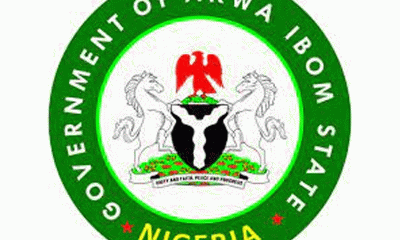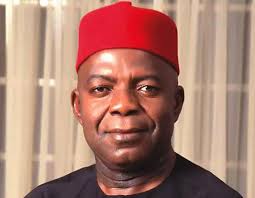NEWS
NNPC, CBN, Work out 90 Days Jet Fuel Cushion for Airliners
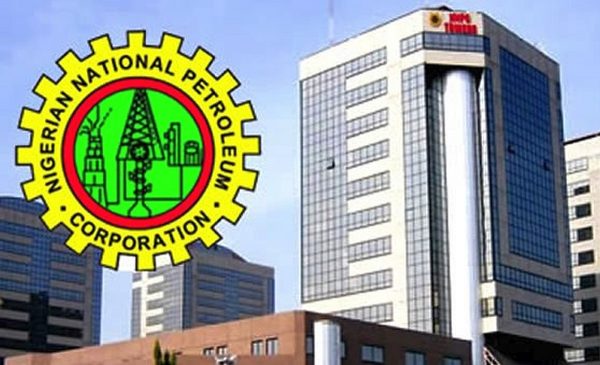
.Operators to have JetA1 Import Licence
By Joseph Amah, Abuja
The Nigeria National Petroleum Corporation (NNPC) Limited, Central Bank of Nigeria (CBN) and airline operators have agreed to provide six million litres of aviation fuel at N480 a litre for three months.
It was part of the agreements reached at the end of the meeting summoned by the House of Representatives on Monday to avert airline operators’ planned shutdown.
On Friday, the Airline Operators of Nigeria (AON) announced a plan to shut down operations from Monday over the high cost of aviation fuel.
The group complained that aviation fuel, also known as Jet A1, has reached an all-time high of N700 per litre.
Speaker of the House of Representatives, Femi Gbajabiamila, announced the resolutions after about four hours of the meeting.
Gbajabiamila said the Central Bank of Nigeria (CBN) has agreed to provide the aviation fuel at N480 — in what seems like a forex subsidy — pending when the carriers would be granted license to import the commodity.
“In the long term, you commence the process of applying for your own licence to be able to import your own jet fuel. So that it will be removed, whether it is middlemen or frontmen or whatever. You will know the landing cost to assist you in your business,” he said.
“There is the benevolence of the CBN governor that six million litres available now at N480. You will get an allocation in the next three months through the companies (marketers) that you have nominated so that you would not come back and say jet fuel is now a certain amount and it is the fault of the NNPC. You have nominated those people that are selling to you.”
As a long-term solution, the speaker said the airline operators must commence the process of securing a license for the importation of aviation fuel to avoid suspicion over the landing cost of the product and other associated logistic issues.
While appreciating all the stakeholders for the efforts put in at resolving the issue at stake, he thanked the airline operators for being nationalistic in calling off the strike.
“I hope that the outcome of this meeting will usher in a lasting solution to these challenges of Jet A1 bearing in mind that there is a laissez-faire economy of demand and supply,” he added.
Speaking at the meeting, Allen Onyema, vice-president of AON, said the scarcity can be addressed if airliners are allowed to purchase aviation fuel directly.
“We were told here at the last meeting that fuel would be sold to us at N500 which we protested that it was still on the high side because even when fuel was selling at N200 or N250, the operating cost was about 40 per cent,” he said.
“It rose to N400 and N450, and that was when we were alarmed, and you noticed that everybody tweaked his inventory when we now raised our base fare to about N50,000, which did not address the matter.
“We were invited to the House, and when we came here, it was reached that they would give us fuel at N500 within three days. That never happened. We continued writing, and nothing happened.
“Much later, we were invited by the midstream and downstream authority and we were told that the president approved 25,000 metric tonnes for us as a palliative to help us. We were very grateful to the president. We were happy. We were told to nominate marketers that would market this product for us.
“We were told to have a meeting with these marketers. We called all the marketers and held a meeting with them. We decided the logistics, so they would take their logistical costs and everything, and at the end of the day that fuel was getting to them, they told us at N335, so we put everything together, and it would be getting to less than N400 for the cost, and we said even if they sell to us at N450 it would be okay.
“We were told that a week later that is when the consignment would be arriving in Nigeria and when this happened, the next we got to hear from the marketers was that they had already been given the consignment that we were all jostling for. So we waited thinking that they would sell as agreed. They never.”
Onyema said the matter was reported to Mele Kyari, group managing director of the Nigerian National Petroleum Company (NNPC) Limited, but no action was taken.
“I called the MD of NNPC in the presence of our members. He replied, saying there was no way there would leave us to get direct products that was dangerous,” he said.
“With due respect, Mr Speaker, we were not striking. We did not intend to go on a strike. It was not a strike. What AON was saying on Friday when we released our communique was that we do not have the money anymore to pay.”
Speaking at the meeting, Kyari said aviation fuel cannot have a fixed price because it is a deregulated product.
“So you cannot hold unto any price and indeed what you have seen in the media is N700 reference point. It cannot be a reference point. It depends on the market condition. It can be higher than N700 depending on the market. This market shifts. As we speak, it is closely related to the price of crude oil,” he said.
“It is our role to ensure we intervene. We did. We brought in products so that we can dampen the price. In March and April, we brought in cargo and made it available to the entire industry at N460. There is a build-up to that price. When the customer takes marine at N435, he has to transport, he has to the charter vessel, bring it to his depot, to his fuel station and transport it. So there cannot be two same price in Lagos and Maiduguri.
We cannot fix the price. We cannot ask for N500. We cannot say it must be below N600 or N700.
On his part, Governor of the Central Bank of Nigeria (CBN) Godwin Emefiele, said the apex bank has no control over the flow of the dollar.
“We do not have forex to sell. It would be difficult for us to grant any concession. It means we would be taking a hit or we would be providing some sort of subsidy for the industry,” he said.
NEWS
NBA Slams Ibom Air over Passenger’s Undignified Treatment
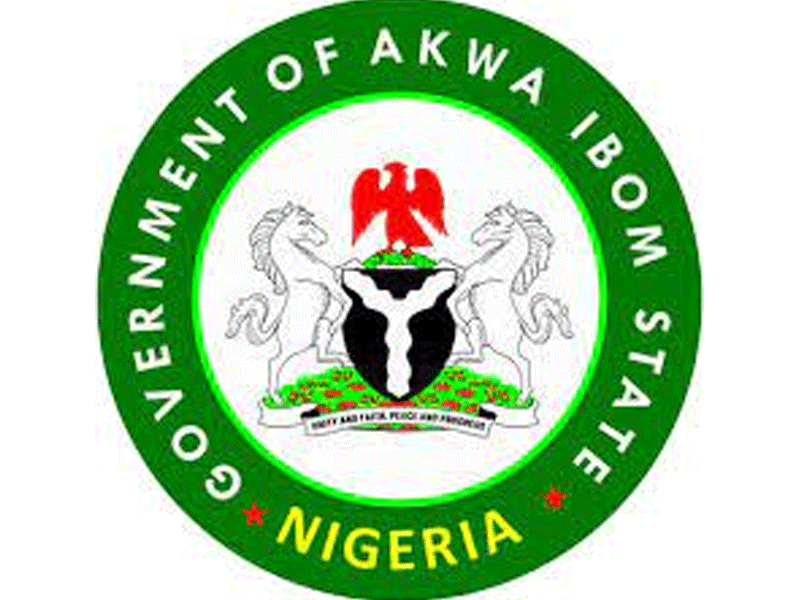
The Nigerian Bar Association (NBA) has condemned the treatment of Ms Comfort Emmanson aboard Ibom Air, describing it as reckless, unlawful and a grave violation of her right to dignity.This is contained in a statement signed by the NBA President, Mr Afam Osigwe (SAN) and the General Secretary, Dr Mobolaji Ojibara.
Report says that on Aug. 10, an incident occurred aboard an Ibom Air flight involving Emmanson. NBA described the manner in which Emmanson was removed from the aircraft as dehumanising.NBA noted that video footage showed an Ibom Air hostess blocking Emmanson’s exit from the plane.The association noted that the conduct could constitute false imprisonment and provocation, potentially escalating the situation.NBA expressed outrage over allegations that Emmanson was publicly stripped of her clothing, humiliated, filmed and had the footage circulated online.The association viewed the photographing, dissemination and online circulation of indecent images of her as both degrading and a serious invasion of privacy, constituting a criminal act.“Even if the incident had to be reported, the footage should have been blurred or edited in a way that did not expose her nudity to the public,” NBA said.The association stressed that those responsible for capturing and distributing the unedited footage must be identified and prosecuted.They warned that such acts erode public trust and undermine the rights of all citizens to be treated with dignity and respect.NBA considered the lifetime ban on Emmanson from flying Ibom Air or any other, as heavy-handed, legally and morally indefensible, and in breach of the principle of fair hearing.The association argued that only the relevant statutory regulator had the authority to suspend or restrict a passenger’s flying privileges, not private entities or airlines.The NBA demanded that Ibom Air lift the lifetime ban on Emmanson and issue a public apology.NBA urged the Minister for Aviation, the Nigerian Civil Aviation Authority, the Federal Airports Authority of Nigeria, and relevant security agencies to conduct a thorough investigation and sanction those responsible.The association pledged to provide Emmanson with pro bono legal support to protect her rights and seek redress for the violations she suffered. (NAN)NEWS
NLC Urges Crude Sales to Dangote in Naira
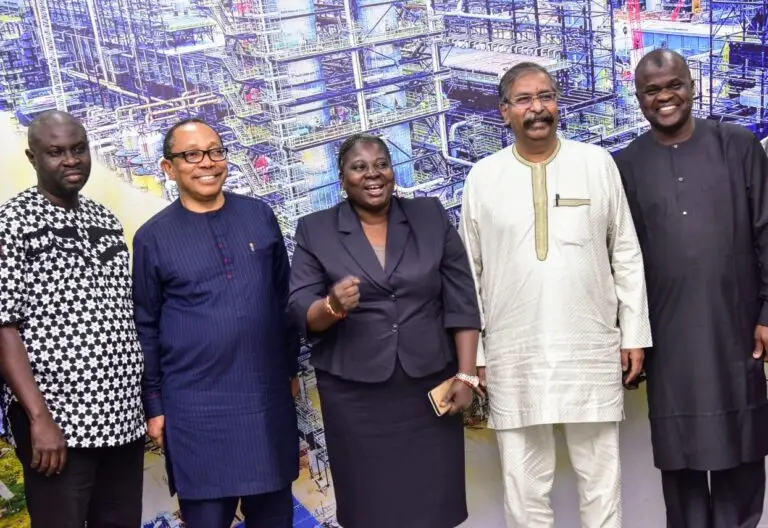
The Nigeria Labour Congress (NLC) Lagos State chapter, has urged the Federal Government to prioritise selling crude oil to the Dangote Refinery in Naira. Lagos NLC Chairperson, Funmi Sesi, made the appeal during a Tuesday tour of Dangote Petroleum Refinery and Fertiliser Ltd.
by Labour Writers Association of Nigeria (LAWAN) members and NLC officials. Sesi said compelling the refinery to import crude or buy locally in dollars undermined the promise of reduced fuel prices for Nigerians. “This country has crude oil in abundance. Why is Dangote still importing crude or paying in hard currency for locally produced crude?” she asked. “If the government truly wants to lower fuel prices and support local refining, it must sell crude oil to Dangote in Naira,” she added. According to her, sourcing crude locally in local currency would significantly reduce operational costs and lead to a sustainable drop in fuel prices. The union leader praised Dangote Ltd. for creating a transformative national asset that helps bridge Nigeria’s fuel supply gap, creates jobs, and boosts industrial capacity. She said the scale and strategic importance of Dangote Group’s investments were already delivering measurable benefits to Nigerians. “Today, we have seen the refinery, the fertiliser plant, and other investments in this axis. The size and impact are enormous and impressive,” she said. She described the projects as clear efforts to improve essential product availability, create jobs, and advance Nigeria’s industrialisation. Following the removal of petrol subsidies, Nigerians faced a sharp rise in Premium Motor Spirit (PMS) costs. She said Dangote’s refinery entry helped stabilise prices. Sesi noted that Dangote’s operations had significantly lowered PMS and other refined product prices, demonstrating private sector leadership in the industry. “With a 650,000-barrel daily capacity, this refinery can serve Nigeria and West Africa. We also saw large vessels exporting fertilisers to other countries,” she said. She praised Aliko Dangote for building a fully operational, world-class refinery that meets domestic and regional refined petroleum needs. Sesi also commended the production of Euro-5-compliant fuel with reduced sulphur content, aligning with global environmental standards and enhancing Nigeria’s market reputation. “This is the pride we want — a Nigerian company producing at global standards, changing the narrative, and boosting our global standing,” she said. She also lauded Dangote Fertiliser Company, which already exports to international markets, urging government support to improve food security and reduce imported agricultural inputs. Dangote Industries Vice President, Oil and Gas, Devakumar Edwin, said the refinery was addressing Nigeria’s dependence on imported refined products. He said it was setting a foundation for a sustainable, competitive refining industry that would benefit the national economy. Edwin revealed plans to deploy 4,000 Compressed Natural Gas (CNG)-powered trucks to distribute refined petroleum products nationwide. He said the CNG trucks would ensure domestic refining benefits and lower fuel prices are fully passed to Nigerian consumers. According to him, the CNG fleet would reduce logistics costs — a major contributor to pump prices. “The deployment of 4,000 CNG-powered trucks will help pass down domestic refining benefits and lower product prices to consumers,” he said. He clarified the aim was to improve distribution efficiency, not displace existing operators. Edwin added that CNG trucks are environmentally friendlier and cheaper to run, helping to make refined products more affordable nationwide. (NAN)Foreign News
Gaza: UNESCO Condemns ‘Unacceptable’ Killing of Journalists

The United Nations Educational, Social and Cultural Organisation (UNESCO), has strongly condemned the killing of six journalists in Palestine by an Israeli drone on Sunday.UNESCO’s Director-General, Audrey Azoulay, made this known in a statement on Tuesday.“I condemn the killing of journalists Anas Al-Sharif, Mohammed Qreiqeh, Ibrahim Zaher, Mohammed Noufal, Moamen Aliwa, and Mohammed Al-Khaldi and call for a thorough and transparent investigation, she said.
Five of the six worked for the influential Qatari-based media organisation, Al Jazeera. Anas Al-Sharif and Mohammed Qreiqeh were on-air correspondents, while Ibrahim Zaher, Mohammed Noufal and Moamen Aliwa worked as camera operators.Mohammed Al-Khaldi was a freelance photojournalist.They were reportedly killed by an Israeli attack on a tent used by media personnel at the entrance of Al-Shifa Hospital in Gaza City.The Israeli Defense Forces (IDF) alleged that the 28-year-old al-Sharif was a serving Hamas operative.Al Jazeera strongly denies this, describing the attack as an “assassination” and “yet another blatant and premeditated attack on press freedom.”The UN Human Rights Council-appointed independent expert on freedom of expression had on July 31 denounced an Israeli military spokesperson’s “repeated threats” and “unfounded accusations” against Al-Sharif.The council had described the allegation as “a blatant attempt to endanger his life and silence his reporting” in Gaza.Two Special Rapporteurs on Tuesday described the killings as “an attempt to silence reporting on the ongoing genocide and starvation campaign” in Gaza.“It is outrageous that the Israeli army dares to first launch a campaign to smear Anas Al-Sharif as Hamas in order to discredit his reporting and then kill him and his colleagues for speaking the truth to the world,” they said.The experts demanded an immediate investigation into the killings and full access to international media, which Israel currently bars from entering Gaza.Special rapporteurs and other independent experts are appointed by and report regularly to the Human Rights Council.They work in their individual capacity, are not UN staff and receive no payment for their work.UNESCO chief Azoulay stressed that targeting journalists reporting on conflicts is unacceptable and violates international law.She also reiterated her call to respect UN Security Council Resolution 2222, which was unanimously adopted in 2015 to protect journalists, media professionals, and associated personnel in conflict situations.UNESCO reports that since Oct. 2023, at least 62 journalists and media workers have been killed in the line of duty in Palestine.This excludes deaths in circumstances unrelated to their work, while OHCHR reports that at least 242 Palestinian journalists have been killed in the same time frame. (NAN)











